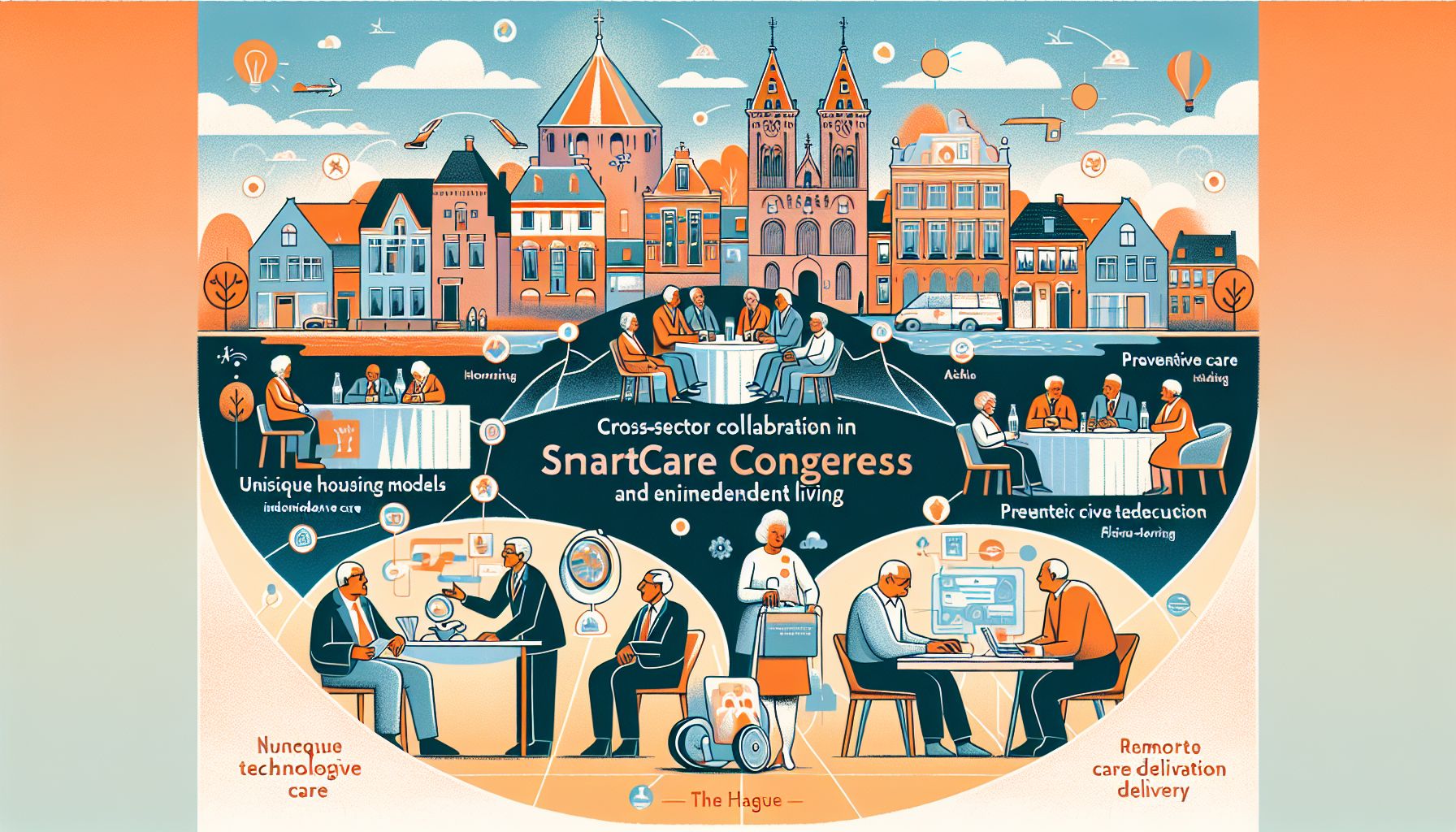SmartCare Congress 2024: The Hague Explores Tech Solutions for Aging in Place

The Hague, Sunday, 11 August 2024.
The SmartCare Congress 2024, set for October 17 in The Hague, will bring together key stakeholders to discuss innovative technologies enabling the elderly to live independently longer. The event will focus on four themes: housing models, preventive care, early detection, and remote care delivery, addressing the needs of an aging population through cross-sector collaboration.
Innovative Technologies in Elderly Care
The SmartCare Congress 2024 aims to delve deep into technological and social innovations that support elderly and disabled individuals in maintaining their independence at home. This falls under the healthtech domain, as it involves the use of advanced technologies to improve health outcomes and quality of life for the elderly. The congress will explore how smart home technologies, AI, remote monitoring systems, and other innovations can contribute to a more autonomous living environment.
Benefits of Technological Innovation
Integrating technology into elderly care offers numerous benefits, including enhanced safety, improved health monitoring, and reduced need for hospital visits. For instance, smart home devices and sensors can detect falls or other emergencies, alerting caregivers in real-time. Preventive care technologies can help manage chronic conditions by providing timely reminders for medication and health check-ups. Remote monitoring systems allow healthcare providers to track vital signs and intervene early if issues arise, thus preventing complications and hospital admissions.
How It Works
These technologies work by incorporating sensors, artificial intelligence, and connectivity solutions into everyday living environments. For example, smart home systems can include motion sensors to monitor activity levels, voice-activated assistants to facilitate communication, and health monitoring devices to track vital signs. AI algorithms analyze the data collected to provide insights and early warnings, ensuring timely interventions. Remote care solutions enable healthcare providers to offer consultations and support through telemedicine platforms, reducing the need for in-person visits.
Key Players and Innovations
Several companies and organizations are at the forefront of these innovations. In Japan, companies like HOYA Technosurgical Corporation and Terumo Corporation are developing advanced medical devices and remote monitoring solutions. The Senior Living Lab in Switzerland is working on autonomous mobility and communication technologies to combat isolation among the elderly. These organizations are based in regions with a high concentration of elderly populations and are leveraging local expertise to drive innovation in elder care.
Global Trends and Future Directions
The global trend towards an aging population is driving the demand for innovative elder care solutions. According to the World Health Organization, the number of individuals aged 80 and above is projected to rise significantly by 2050[1]. This demographic shift necessitates scalable and sustainable solutions to support independent living. Future directions in elder care emphasize the integration of social and technological innovations to enhance the quality of life for older adults. Ethical considerations, such as preserving autonomy and dignity, are paramount in developing these technologies.

